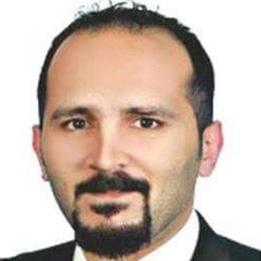

Senior legal counsel | Zahid Group





Ahmad Swaiss
Senior legal counsel | Zahid Group
Looking forward, what technological advancements do you feel will impact the role of in-house legal teams in the future the most?
In my opinion, artificial intelligence (AI) is the most significant technological advancement that may potentially impact the role of in-house legal teams in the future the most. AI may considerably develop and radically enhance the efficiency of the judicial and legal systems, especially with the realisation of the importance of AI and its innovative software, tools and platforms during the Covid-19 pandemic by the countries and the subsequent measures and actions taken, including, but not limited to the introduction and adoption of digital judicial notifications, digital signatures offered by specialised companies, such as DocuSign (U.S Company) and Sayen (STC, Saudi Company), electronic attestation and legalisation by chambers of commerce and Ministries, electronic issuance of powers of attorney, remote litigation and the electronic trials through official platforms, for instance, NAJIZ platform in Saudi Arabia.
In the context of litigation, all the changes made have facilitated the works of courts in completing their routine tasks and contributed to accelerating litigation procedures and saving the time and effort of litigators in hearing sessions. It is expected that AI has a prominent role in determining the most likely proactive perceptions and predictions of the judgements in lawsuits through analysing the information and court documents and evaluating the facts, evidence and the provisions of law. It may also determine the most effective litigation strategies.
In addition, AI may be developed to be an effective tool for the third-party investors who fund litigation, for example, debt recovery companies, by helping those investors make their prudent and enlightened decisions on whether invest and spend money on such claims, depending on the perceptions and anticipations of the outcomes and judgements, and therefore, AI will greatly contribute to mitigating the risk of losing the case. In the GCC region, third-party litigation funding is now recognised and legitimated by laws and courts of some countries, for instance, the Litigation Funding Rules of Abu Dhabi Global Market Courts has been enacted in 2019. In respect to Saudi Arabia, the lawsuits have recently become subject to fees under the 2021 Judicial Fees Law, and consequently, such type of funding may be recognised in Saudi Arabia as well in the near future.
We are now able to make live chats with robots provided by the Ministries on their platforms (such as “Ask Hamad” in the UAE and “Ask me” in Saudi Arabia) – those robots are able to provide accurate responses to inquiries very quickly as and when requested. Most interestingly, there are now robots able to mediate and successfully settle disputes between the parties, albeit the robots have originally been designed and used for small value disputes. For example, the mediation in the “unpaid bill” claim in the UK in February 2019. It is worth noting that these robots are constantly being developed so it is expected that they may simulate human mental abilities and patterns of work and be able to resolve more complicated or greater value claims.
Furthermore, AI may manage routine tasks, such as reviewing contracts and documents and conducting legal research, and assist in-house legal teams and enlighten them about the best ways and means that reach practical solutions to specific issues and conduct accurate legal research and save time spent in the gathering and assessment of information necessary about a particular issue, thus the in-house legal teams may focus on more priority and important tasks, which, in turn, boost their productivity.
Last but not least, it should be noted that AI does not mean that in-house legal teams will be replaced by a robot and does not reduce their role, but rather it provides them with assistance. Having said that, there will always need to develop AI so that it should be kept abreast with the new and changes of law, so it is expected to open new legal job opportunities for those legal practitioners who have exceptional creativity and innovative skills. This is on the one hand, and on the other hand, the human interaction, how to deal with judges and pay attention to details and changing situations during hearing sessions require immediate response by, the skills and acumen of seasoned lawyers. As a result, the presence of in-house legal teams is crucial to feed the AI software, tools and platforms and to ensure fair trials and secure the right of defence.
It remains to be seen how legal programmes offered by universities will be developed in order to prepare future lawyers who are able to use and develop AI and smart technologies.
legal advisor | Astra Foods, Saudi Arabia
A ‘diligent’ and ‘devoted’ lawyer, Swaiss is valued both inside and outside his organisation, for his legal skills and ‘exceptional’ intrapersonal skills. Heading a small legal team Ahmad Swaiss established...